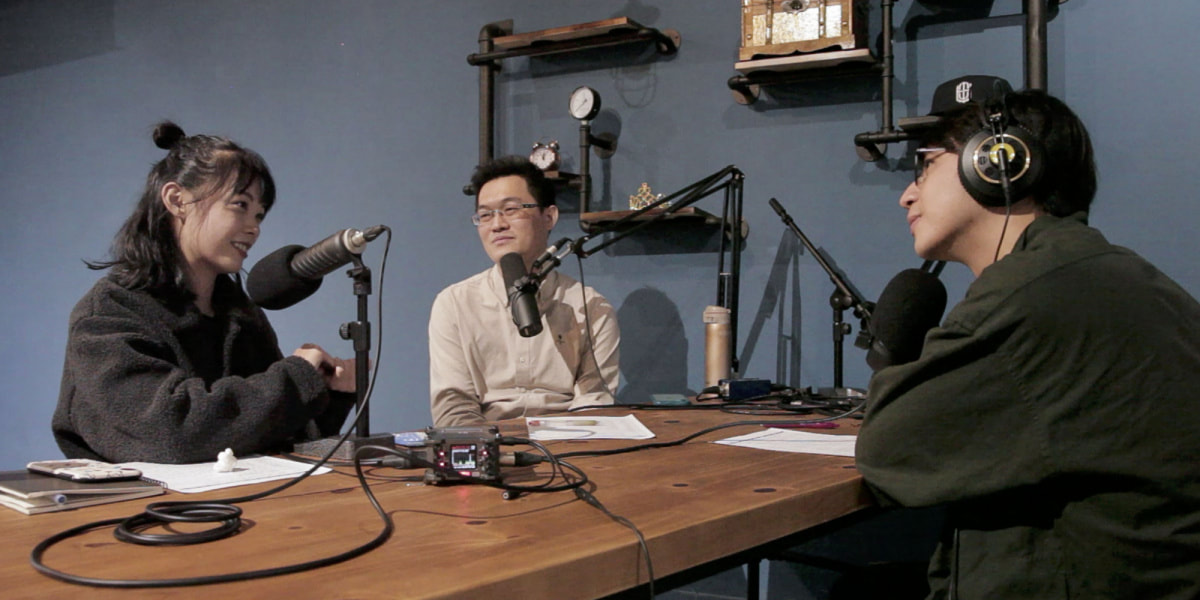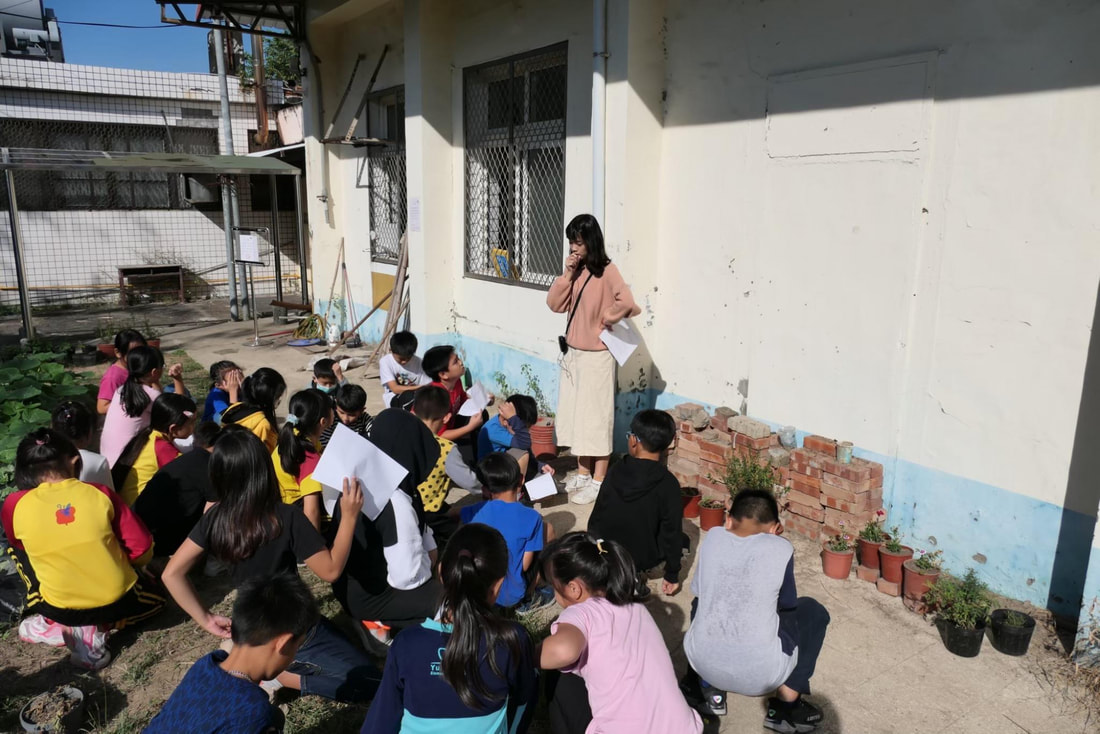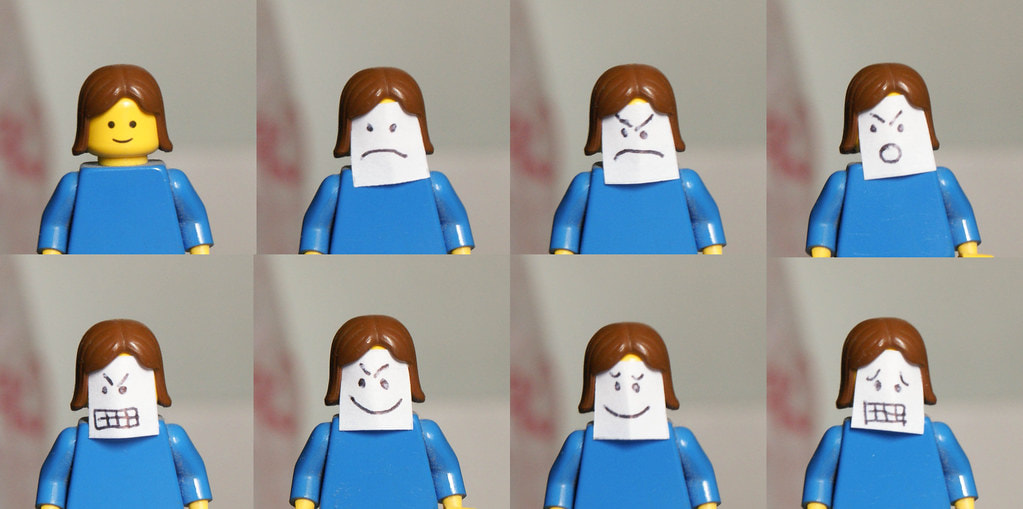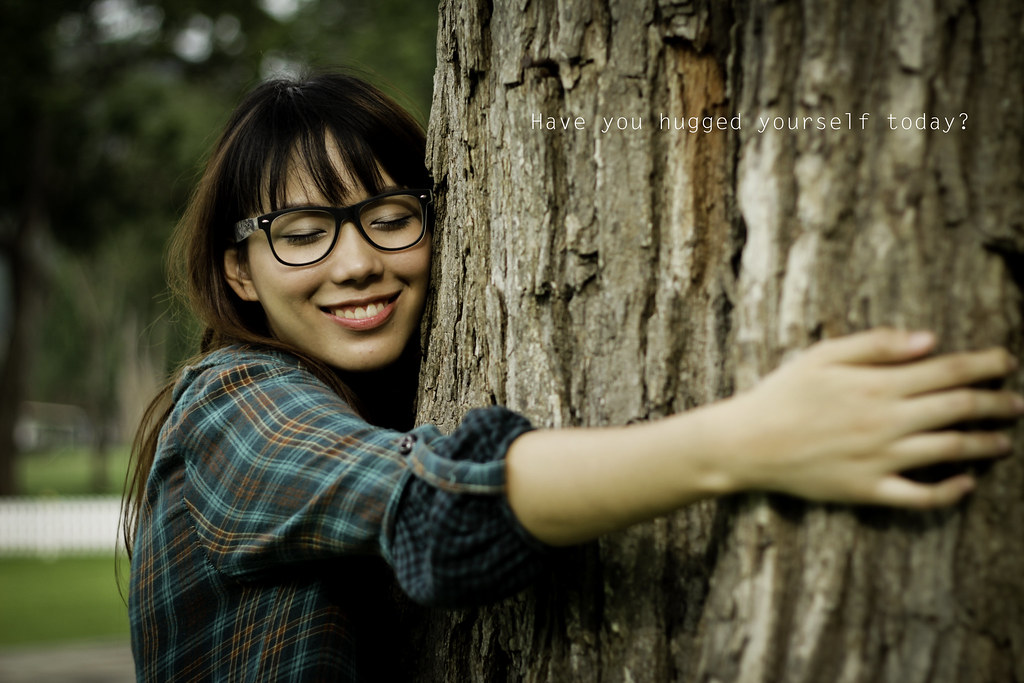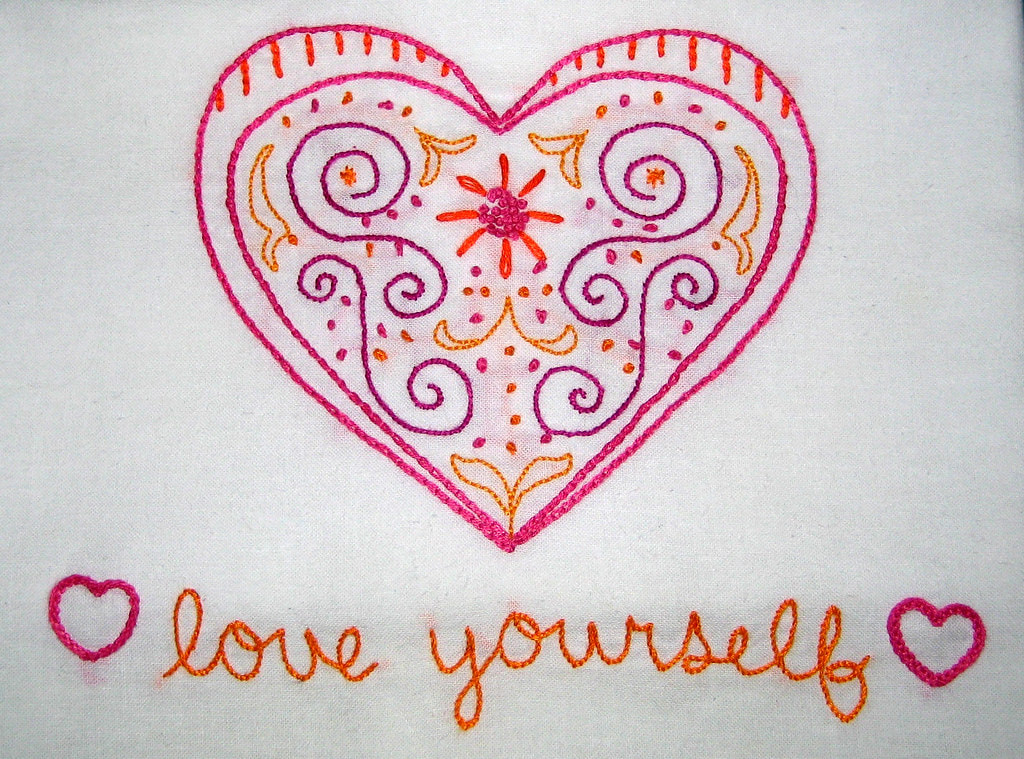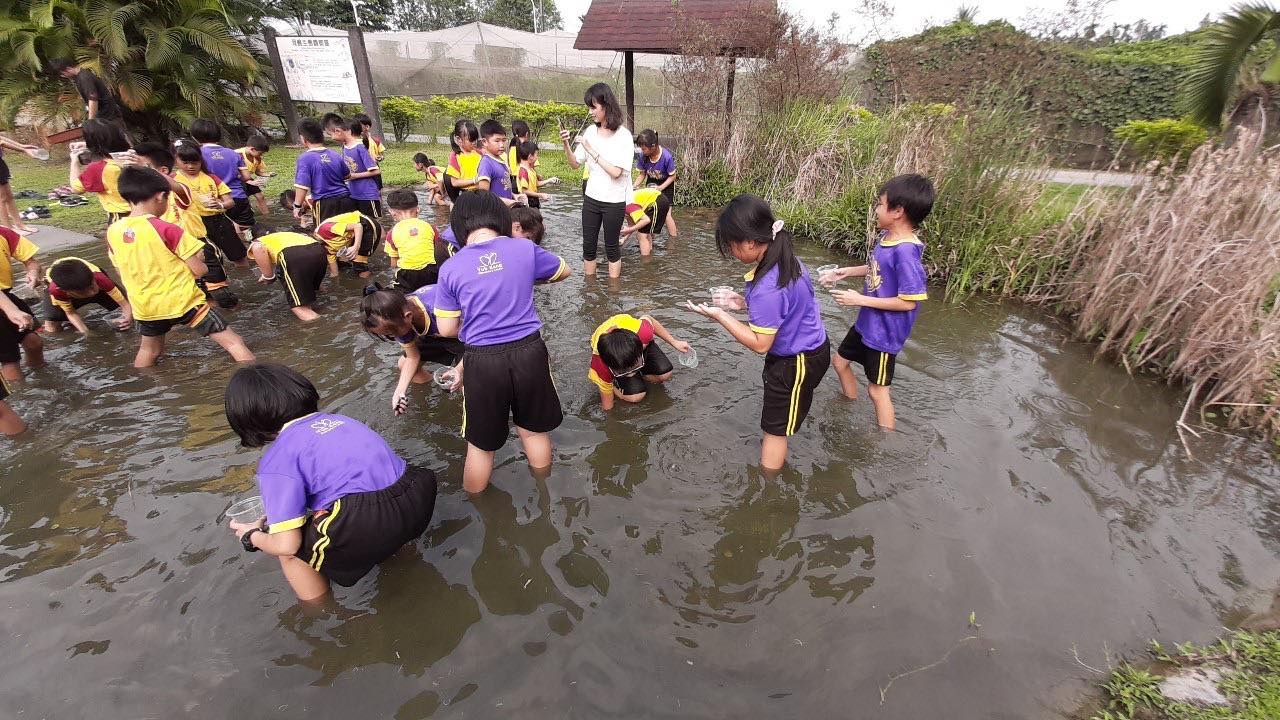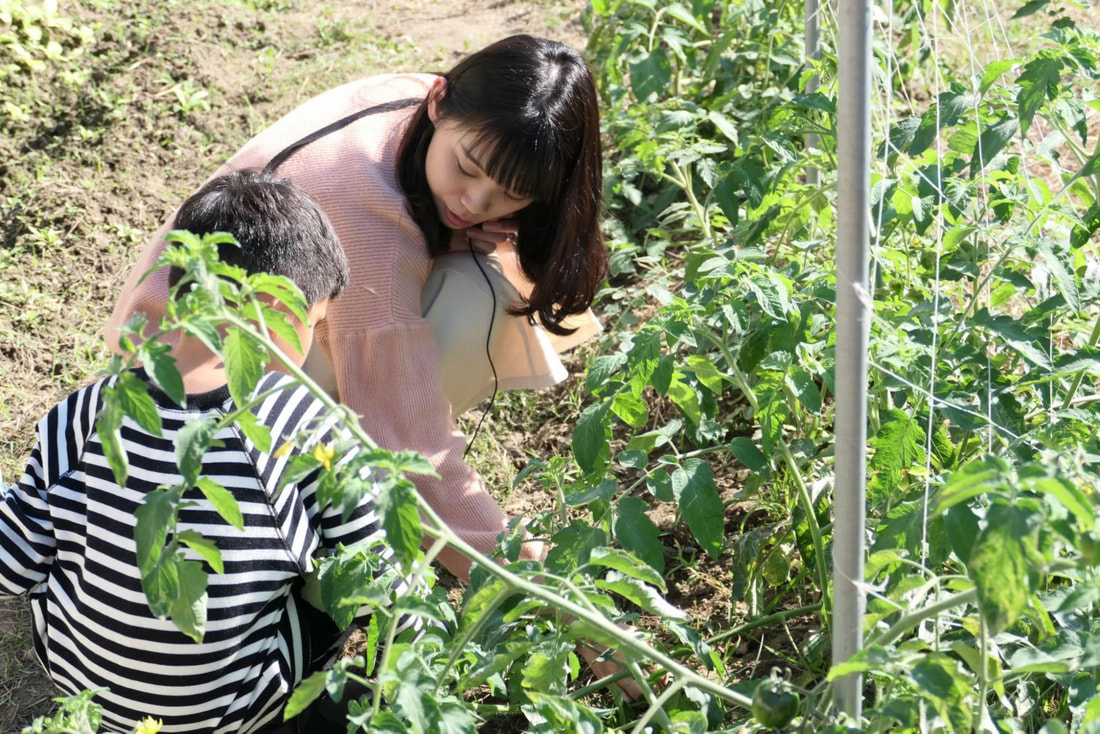Self-Acceptance, a Necessity to Carry On
"The Listener" - a program about self-awareness and reconciling
The public has unrealistic expectations for teachers and front-line helpers. They take for granted that teachers should always have a mild manner, a cheerful outlook, and the ability to solve all problems. But teachers are human. Over time, such unrealistic expectations can be a burden, cause stress, and eventually become hurtful.
ACF launched the program “The Listener” on August 27, 2021. In cooperation with TFT (Teach for Taiwan), a podcast titled "As a teacher, can you be vulnerable?" was recorded to address the importance of self-awareness. In the podcast a rookie teacher Jessie Lee and Counselling Psychologist Chih Heng Chen candidly shared their experience.
ACF launched the program “The Listener” on August 27, 2021. In cooperation with TFT (Teach for Taiwan), a podcast titled "As a teacher, can you be vulnerable?" was recorded to address the importance of self-awareness. In the podcast a rookie teacher Jessie Lee and Counselling Psychologist Chih Heng Chen candidly shared their experience.
The Frustration and Self-doubt of a Rookie Teacher
Chih Heng: Looking back on those days, what emotions emerge?
Jessie: Anxiety, nervousness, depression… and tears, the frustration was constant.
Chih Heng: Did you have these emotions because you felt what you did was not good enough?
Jessie: Right, I felt I was just not good enough. I was always in a hurry, always wondering what happened to a certain kid, wondering if I missed anything.
Chih Heng: You felt as if you were not qualified, not being a parent yourself, and being a novice teacher, ‘Why should they listen to me?’
Jessie: Yes, I took over a second grade class. The first reactions from the parents were, ‘She is so young! Can she teach?’ I sensed their doubts and concerns and wanted to address them.
Chih Heng: So, under these circumstances, you wanted to go an extra mile to prove yourself?
Jessie: Yes, I wanted to ensure them that they can entrust their kids with me.
Chih Heng: Sounds like you wanted to prove that you are a reliable teacher who can do this job; but deep down did you really believe that yourself?
Jessie: In reality, I started to doubt myself!
Chih Heng: I was once a rookie teacher. In fact, all new teachers and novice helpers encounter the same challenge of proving themselves. They hold a higher standard for themselves, but at the same time question their own ability deep down.
Jessie: Exactly! On the one hand, I have always told myself that I can do this. I really wanted to help the kids discover different possibilities, to overcome fears for Math and English, to improve their handwriting. However, things did not happen the way I envisioned. For example, the parents thought the class was previously very well-behaved but changed after I took over. I internalized the blame.
Chih Heng: That tells me you hold high standards for yourself. Have you always been this way or only after you became a teacher?
Jessie: I have always been this way. I have always wanted to please people, especially those who are important to me; probably because I felt I needed to do so in order to be loved.
Chih Heng: Looking back on those days, what emotions emerge?
Jessie: Anxiety, nervousness, depression… and tears, the frustration was constant.
Chih Heng: Did you have these emotions because you felt what you did was not good enough?
Jessie: Right, I felt I was just not good enough. I was always in a hurry, always wondering what happened to a certain kid, wondering if I missed anything.
Chih Heng: You felt as if you were not qualified, not being a parent yourself, and being a novice teacher, ‘Why should they listen to me?’
Jessie: Yes, I took over a second grade class. The first reactions from the parents were, ‘She is so young! Can she teach?’ I sensed their doubts and concerns and wanted to address them.
Chih Heng: So, under these circumstances, you wanted to go an extra mile to prove yourself?
Jessie: Yes, I wanted to ensure them that they can entrust their kids with me.
Chih Heng: Sounds like you wanted to prove that you are a reliable teacher who can do this job; but deep down did you really believe that yourself?
Jessie: In reality, I started to doubt myself!
Chih Heng: I was once a rookie teacher. In fact, all new teachers and novice helpers encounter the same challenge of proving themselves. They hold a higher standard for themselves, but at the same time question their own ability deep down.
Jessie: Exactly! On the one hand, I have always told myself that I can do this. I really wanted to help the kids discover different possibilities, to overcome fears for Math and English, to improve their handwriting. However, things did not happen the way I envisioned. For example, the parents thought the class was previously very well-behaved but changed after I took over. I internalized the blame.
Chih Heng: That tells me you hold high standards for yourself. Have you always been this way or only after you became a teacher?
Jessie: I have always been this way. I have always wanted to please people, especially those who are important to me; probably because I felt I needed to do so in order to be loved.
There is No Right or Wrong Emotion, Make the Most of the Experience
Chih Heng: Jessie, that was precious. You choked up and expressed emotion in your body language. Most people have the tendency to suppress their unpleasant emotions. They tend to tell themselves to not lose control, to stop feeling bad, and divert the topic to dismiss the issue. Sometimes they would blame themselves for showing emotions and losing control. However, in order to calm your emotions, it is important to experience them. Just now, Jessie, your emotions emerged. You could choose to suppress them, or to let the tears flow, to experience them, let them run the course and eventually calm yourself. Jessie, you mentioned that you have read my first book, “Out of Office: Taking a Break or Rejuvenating.” What is your favorite quote from the book?
Jessie: My most impressionable quote is ‘to accept does not mean to agree, but permission to exist.’
Chih Heng: Yes, we don’t need to determine if these emotions are right or wrong. I don’t need to judge or blame myself for feeling uncomfortable, angry, and anxious. It is who I am; this is self-acceptance; this is learning to set myself free. Jessie has always set a high standard for herself and does not want to disappoint others. In time, she becomes accustomed to shouldering all the burden and responsibility. That’s why she took all the blame for what happened. These are common issues every new teacher encounters. When I was a rookie teacher, I also lost control in front of my students and shouted; I doubted myself. But when we take all responsibility upon ourselves and push ourselves too hard, we only induce more emotion and stress.
Jessie: Indeed, this vicious cycle continued for a whole semester. I cried every day. I took a deep breath every time I left my room for school. Each time I tried to tell myself that I can do it, but there was reluctance. I was in bad shape; It was tough for me. Later I shared my feelings with coworkers and sought professional counseling. I cried every time I talked. I now realize that all these tearful dialogues were a process of healing and self-help.
Chih Heng: Jessie, that was precious. You choked up and expressed emotion in your body language. Most people have the tendency to suppress their unpleasant emotions. They tend to tell themselves to not lose control, to stop feeling bad, and divert the topic to dismiss the issue. Sometimes they would blame themselves for showing emotions and losing control. However, in order to calm your emotions, it is important to experience them. Just now, Jessie, your emotions emerged. You could choose to suppress them, or to let the tears flow, to experience them, let them run the course and eventually calm yourself. Jessie, you mentioned that you have read my first book, “Out of Office: Taking a Break or Rejuvenating.” What is your favorite quote from the book?
Jessie: My most impressionable quote is ‘to accept does not mean to agree, but permission to exist.’
Chih Heng: Yes, we don’t need to determine if these emotions are right or wrong. I don’t need to judge or blame myself for feeling uncomfortable, angry, and anxious. It is who I am; this is self-acceptance; this is learning to set myself free. Jessie has always set a high standard for herself and does not want to disappoint others. In time, she becomes accustomed to shouldering all the burden and responsibility. That’s why she took all the blame for what happened. These are common issues every new teacher encounters. When I was a rookie teacher, I also lost control in front of my students and shouted; I doubted myself. But when we take all responsibility upon ourselves and push ourselves too hard, we only induce more emotion and stress.
Jessie: Indeed, this vicious cycle continued for a whole semester. I cried every day. I took a deep breath every time I left my room for school. Each time I tried to tell myself that I can do it, but there was reluctance. I was in bad shape; It was tough for me. Later I shared my feelings with coworkers and sought professional counseling. I cried every time I talked. I now realize that all these tearful dialogues were a process of healing and self-help.
Break the Cycle: Accept the Setbacks, Liberate Yourself
Chih Heng: Jessie, you don’t need to be strong and hide your weaknesses. It is ok to fall short. Keep speaking from your heart. The critical turning point is the transformation from criticizing oneself to caring for oneself. Healing begins when that transformation happens.
Jessie: Are you telling me that I need to first accept the fact that I am not an effective teacher, but someday I will be, before I can move forward? Otherwise, I would just be running in circles.
Chih Heng: Yes, self-acceptance is the first step of self-awareness and self-calming. Allowing myself to be imperfect and accepting failure will gradually allow myself to be accommodating. That is, I want to do well, and sometimes I will, but other times I may not. I accept that and will learn and continuously improve from the experiences. When I become accommodating, I stop pushing myself and become calmer; hence become more effective.
Jessie: Yes, I began to be kind to myself. I paid myself compliments and often gave myself a hug. I would sometimes console myself, tearfully write in my diary, listen to music, or paint. I found a safe place within myself for on-going self-dialogues. I then found that when I was calm, my class became calm. The kids became more loving to each other.
Chih Heng: I know many teachers who believe they are their students’ role models, hence they cannot fail, let alone admit short comings to their peers. Therefore, they limit themselves to strictly professional interactions and avoid personal sharing with their peers. Maintaining an idol image becomes a burden and prevents one’s ability to seek help and is unhealthy.
Chih Heng: Jessie, you don’t need to be strong and hide your weaknesses. It is ok to fall short. Keep speaking from your heart. The critical turning point is the transformation from criticizing oneself to caring for oneself. Healing begins when that transformation happens.
Jessie: Are you telling me that I need to first accept the fact that I am not an effective teacher, but someday I will be, before I can move forward? Otherwise, I would just be running in circles.
Chih Heng: Yes, self-acceptance is the first step of self-awareness and self-calming. Allowing myself to be imperfect and accepting failure will gradually allow myself to be accommodating. That is, I want to do well, and sometimes I will, but other times I may not. I accept that and will learn and continuously improve from the experiences. When I become accommodating, I stop pushing myself and become calmer; hence become more effective.
Jessie: Yes, I began to be kind to myself. I paid myself compliments and often gave myself a hug. I would sometimes console myself, tearfully write in my diary, listen to music, or paint. I found a safe place within myself for on-going self-dialogues. I then found that when I was calm, my class became calm. The kids became more loving to each other.
Chih Heng: I know many teachers who believe they are their students’ role models, hence they cannot fail, let alone admit short comings to their peers. Therefore, they limit themselves to strictly professional interactions and avoid personal sharing with their peers. Maintaining an idol image becomes a burden and prevents one’s ability to seek help and is unhealthy.
Love Yourself First: We Can't Give What We Don't Have
Jessie: It’s been often said that, ‘It takes a happy teacher to lead a happy class.’ Similarly, when I am calm, my class is calm. I used to shout often. I later learned that shouting did not yield any result. They hear me better when I speak softly. Another saying, ‘Education is nothing but being a role model and showing love.’ I am inevitably their role model. If they see me straining myself, not caring for myself, they will subconsciously adapt these behavior patterns. Do I want to pass on these behavior patterns to my students? Of course not. So, I must start with myself. Only when I can help myself, then I can help others.
Chih Heng: Yes, if we don’t love ourselves, how can we love others? How can others feel our love, and feel worthy of being loved? I face similar issues with my three-year-old. Whenever I feel angry, I would tell myself to calm down and take a deep breath, ask myself what the right thing is to do. Is shouting effective? When I am calm and rational, I am more likely to make the right judgement calls.
Jessie: It’s been often said that, ‘It takes a happy teacher to lead a happy class.’ Similarly, when I am calm, my class is calm. I used to shout often. I later learned that shouting did not yield any result. They hear me better when I speak softly. Another saying, ‘Education is nothing but being a role model and showing love.’ I am inevitably their role model. If they see me straining myself, not caring for myself, they will subconsciously adapt these behavior patterns. Do I want to pass on these behavior patterns to my students? Of course not. So, I must start with myself. Only when I can help myself, then I can help others.
Chih Heng: Yes, if we don’t love ourselves, how can we love others? How can others feel our love, and feel worthy of being loved? I face similar issues with my three-year-old. Whenever I feel angry, I would tell myself to calm down and take a deep breath, ask myself what the right thing is to do. Is shouting effective? When I am calm and rational, I am more likely to make the right judgement calls.
Managing Emotional Energy: Self-Awareness and Reconciliation
Jessie: Yes, I imagine myself as a battery, why am I consuming so much energy? Am I spending all my energy on self-blame and self-denial? I must sense what drains and what recharges my energy; what makes me tired and what makes me energetic. I also think it's important not to make comparisons with others, but always focus on myself. If I am a little better today than yesterday, then I am in good shape. It doesn't make sense to compare myself with others. Self-awareness is crucial for me.
Chih Heng: Your metaphor is priceless! Self-awareness is the start. If you can accept yourself, profoundly experience your emotions and accept that you are not perfect, then you have set yourself free. In fact, self-doubt is not a bad thing, self-doubt can enable you to find courage to learn and grow. Everyone is on time in their own time zone. We all need to undergo such self-discovery so that we may find peace and positive energy within, and then be recharged to carry on.
(English translation by Angela Chin)
Jessie: Yes, I imagine myself as a battery, why am I consuming so much energy? Am I spending all my energy on self-blame and self-denial? I must sense what drains and what recharges my energy; what makes me tired and what makes me energetic. I also think it's important not to make comparisons with others, but always focus on myself. If I am a little better today than yesterday, then I am in good shape. It doesn't make sense to compare myself with others. Self-awareness is crucial for me.
Chih Heng: Your metaphor is priceless! Self-awareness is the start. If you can accept yourself, profoundly experience your emotions and accept that you are not perfect, then you have set yourself free. In fact, self-doubt is not a bad thing, self-doubt can enable you to find courage to learn and grow. Everyone is on time in their own time zone. We all need to undergo such self-discovery so that we may find peace and positive energy within, and then be recharged to carry on.
(English translation by Angela Chin)
Click here to edit.

